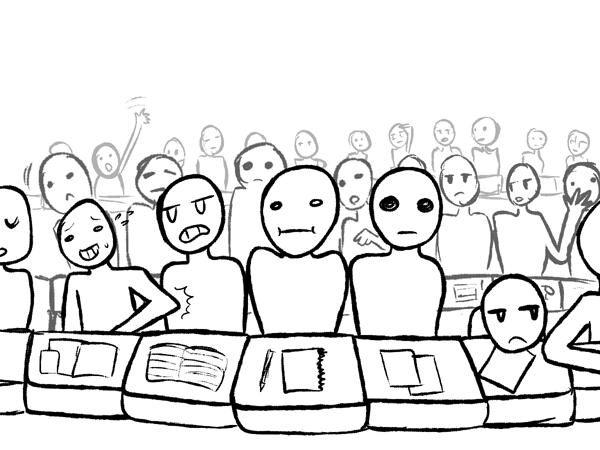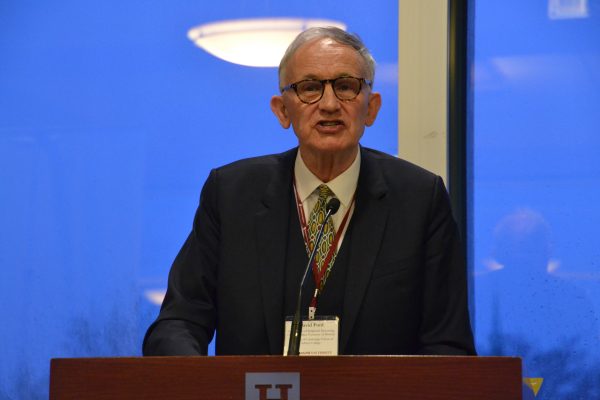Possible lift in caps, potential feedback slack
Certain classes will be having their caps raised.
April 9, 2017
After monitoring class sizes, Hamline looks to give larger caps to intro level and 3000 level classes. Seeing that some of the intro classes and high level classes that are a part of majors generally have lower attendance when there are many classes offered on the same subject, Hamline will be eliminating some classes and raising other classes’ size as to allow for the most optimal number in a class.
“We’re trying to put up general guidelines for caps,” Provost John Matachek said. “We’re just asking for people to be more thoughtful.”
Matachek explained the logic of changing the caps of certain classes, and how that would affect students.
“In an intro level course it doesn’t need to be small. Caps can be raised with essentially no perceived difference [to the students],” Matachek said.
Professor David Tennessen who teaches Introduction to Anthropology talked about his feelings on the new class caps, going into detail about the time management that would have to go into adding more students into an intro class.
“It’s going to change the amount of time you can spend with a student and it’s going to strain teachers’ time,” Tennessen said. “It’s going to make the teaching environment more challenging, but we’re going to have to adapt.”
Other teachers were worried about the size restrictions that physical space of a room allocates.
“My immediate concern is physical space,” Professor John Colburn of Creative Writing 3000, Creating Across Genres said. “I would hope that a piece of thinking about adding more students to a room and the amount of students a room can accommodate is a part of the factor.”
Matachek assured that physical space is being taken into account for the caps of class sizes. Because of fire codes only certain rooms can be used for bigger class sizes, and Hamline only has so many rooms that can accommodate a forty and higher person class.
Colburn was also concerned about the detrimental effects of raising the cap on a writing intensive class.
“There would be less individual feedback in a large [writing intensive class],” Colburn said.
The caps of a class are also looked at through the perspective of optimal teaching techniques. Writing and oral intensive classes won’t have their caps raised because of the interactive component of those classes. FYSEMs will also not be raising their caps.
“We’re trying to do things for a reason and be deliberate about it,” Matachek said. “We want to offer courses that are being pedagogy.”






